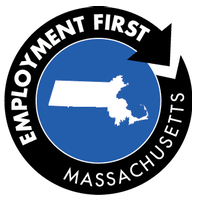Quality Employment Practices
Career Planning
Many options exist for supporting people with disabilities to work in their communities. This page offers tools and guidelines that employment professionals and families can use to navigate the process of preparing for fulfilling work.
Personal Profile Packet
This packet consists of a series of information-gathering tools to be used in conjunction with a person-centered career planning process. The end result of these tools will result in a comprehensive personal profile of an individual. Guidance on how to implement these tools along with additional resources on Person Centered-Planning is also included.
Positive Personal Profile (PPP)
Developed by Dr. George Tilson from TransCen, Inc., the PPP process is another option for gathering relevant career planning information. This article provides comprehensive instructions about how to use this tool and includes the related worksheets that are involved.
Finding the Right Job Tool
This concrete questionnaire is designed to assist the job seeker to explore interests and preferences. The questions are simple and clear, and address skill-related as well as work- environment aspects of employment.
Volunteering, Internships, and Unpaid Work Experiences: Legal and Practical Guidelines
This publication examines these issues, and provides guidelines on the role of volunteer activities, internships and unpaid work when assisting and supporting individuals with disabilities.
Situational Assessment Packet
This packet includes assorted information about use of situational assessment in career planning - what it is, when to use it, how to set one up, what to pay attention to during assessments, the Department of Labor guidelines on community-based assessment, and more.
Starting With Me: Guide to Person-Centered Planning for Job Seekers
A person-centered approach can help individuals with disabilities make satisfying job choices. This ICI brief guides job seekers through a three-stage career development process that includes assessing their interests, researching the job market, and marketing themselves to potential employers.
More Than Just a Job: Person-Centered Career Planning
Sometimes employment professionals think that person-centered career planning has to involve a big meeting, or is only for people with the most significant disabilities. This ICI brief lays out the principles and highlights of this process.
Supporting Individuals with Autism Spectrum Disorder: Quality Employment Practices
This ICI brief focuses on effective placement planning and assessment for job seekers with ASD.
Networking: A Consumer Guide to an Effective Job Search This ICI brief teaches job seekers with disabilities how to become more proactive in their job search.
Job Supports
Once a person with a disability has been hired, the goal is to support them to thrive and grow in their job. These resources offer practical tips for helping people on the job. Topics include understanding workplace culture and solving transportation problems.
Building Friendships at Work
This toolkit for employment specialists, job developers and job coaches can help you take better advantage of opportunities to facilitate friendships at work for those you support.
Natural Supports and Social Inclusion Fact Sheet This fact sheet expounds on the meaning and significance of natural supports and social inclusion and offers tips to employment staff on how to engage employers and coworkers in facilitating employment success.
Workplace Inclusion Checklist
This document provides a list of activities, routines, and rituals that are typically available at a workplace and that can serve as catalysts for facilitation of natural supports and social inclusion.
Placement Support Plan Form
This form provides a collaborative format in which to identify and coordinate what types of assistance the job seeker will need following job placement, including who will provide which supports.
Working with Individuals with Challenging Behaviors: A Problem Solving Guide This fact sheet offers a framework to understand and work through challenging behaviors. Interpreting what the behavior is communicating, seeking a functional analysis, and generating alternative solutions are part of this process.
Job Coach Self-Evaluation Checklist This tool provides a checklist of questions for employment staff to reflectively evaluate their job coaching style and skills at a particular job site.
Job Development
What are the best ways to persuade an employer that hiring a qualified person with a disability is a good investment? How can an employee with disabilities handle disclosure? Find the answers to these and other questions in the resources on this page.
Employer Awareness and Education Web Sites
The sites below are all focused on providing employers with practical info, fact sheets, and resources to dispel myths, and promote recruitment, hiring, and retention of employees with disabilities.
Disclosure Fact Sheet
This fact sheet for employment staff produced by Virginia Commonwealth University and ICI uses a Q & A format to explore various considerations involved in disclosure of disability during the employment process.
Disclosure Decisions To Get The Job
This disclosure decision guide and tool from Virginia Commonwealth University takes job seekers through three steps: Determining need for disclosure, Deciding when to disclose, and Choosing how to disclose.
When Existing Jobs Don't Fit: A Guide to Job Creation
This ICI brief describes how to approach job creation. It includes case studies and a step-by-step tool for job developers to use in this process.
The 30-Day Job Development Action Plan
This ICI brief outlines a strategy that breaks the job search down in to a series of small, manageable tasks, and provides a form to develop and monitor progress.
Making Networking Easier for Job Seekers: A Guide This ICI brief geared to employment staff points out barriers and solutions to promote wider use of networking as an effective career development strategy.
Job Networking in Diverse Communities This ICI brief offers insights and a broad perspective on how enhanced networking strategies can be used in diverse communities to help people with disabilities find better jobs and increase community integration.
